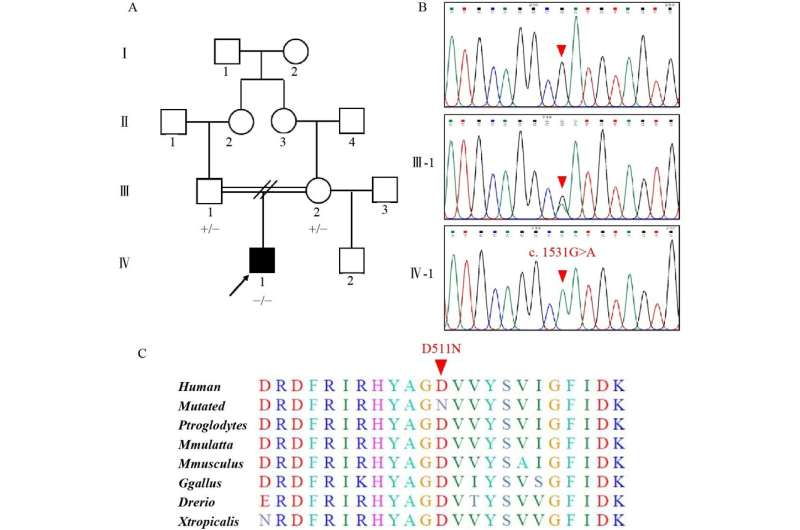This article has been reviewed according to Science X's editorial process and policies. Editors have highlighted the following attributes while ensuring the content's credibility:
fact-checked
proofread
Novel MYO1D variant linked to human laterality defects, congenital heart diseases and sperm defects

New research from a team in China has uncovered a novel variant in the MYO1D gene that is linked to laterality defects, congenital heart diseases, and sperm defects in humans. Laterality defects involve the abnormal positioning of internal organs and can lead to various health complications. Congenital heart diseases affect the structure and function of the heart and are the most prevalent type of birth defect. Sperm defects can result in male infertility, and the discovery of the MYO1D variant sheds light on the genetic factors contributing to these conditions.
The findings are published in the journal Frontiers of Medicine.
The study employed genetic sequencing techniques to identify the MYO1D variant in individuals presenting with the aforementioned conditions. Functional analysis was conducted to understand how this variant impacts the protein's normal function. MYO1D, a myosin family protein, plays a crucial role in cellular activities such as actin filament organization and vesicle transport. The identified variant is believed to disrupt the protein's function, potentially leading to the developmental issues observed in affected individuals.
Clinical data from individuals with the MYO1D variant were analyzed, reinforcing the link between this genetic mutation and the studied conditions. The findings underscore the significance of genetic factors in the diagnosis and clinical management of these congenital disorders.
The implications of this research are plentiful. It advances our understanding of the genetic basis of congenital conditions and could lead to the development of targeted treatments. The identification of the MYO1D variant may enhance predictive and diagnostic capabilities for at-risk individuals. Moreover, the study highlights the necessity for further research into the mechanisms by which the MYO1D variant influences development and disease.
In summary, the discovery of the MYO1D variant associated with laterality defects, congenital heart diseases, and sperm defects is a notable step forward in medical genetics. It not only broadens our comprehension of the genetic framework of these conditions but also opens new paths for potential therapeutic strategies. As our grasp of the human genome expands, so does our capacity to identify the genetic elements that underlie a diverse array of health conditions.
More information: Zhuangzhuang Yuan et al, Identification of a novel MYO1D variant associated with laterality defects, congenital heart diseases, and sperm defects in humans, Frontiers of Medicine (2024). DOI: 10.1007/s11684-023-1042-6





















